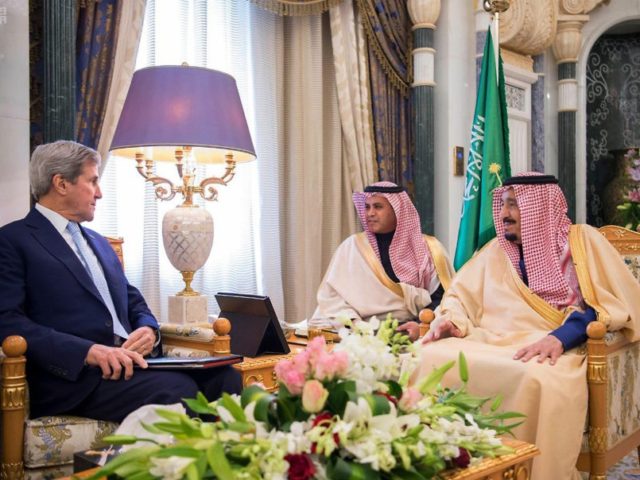In September 2016, the U.S. Congress, with the best of intentions, passed the Justice Against Sponsors of Terrorism Act (JASTA).
The legislation was hurriedly enacted prior to elections as a means to provide justice to families and victims of the 9/11 attacks by enabling them to sue any nation that sponsored those attacks, or other acts of terror, for pain and losses they suffered. President Obama vetoed the Act, but Congress immediately overrode his veto and, with little debate, turned JASTA into law. All this occurred under the radar of American voters engrossed in the presidential election.
We know now that JASTA sets a dangerous precedent fraught with unintended consequences that negatively affect our soldiers and veterans who served in Afghanistan, Iraq and other battlefields. Concerns about JASTA are two-fold. First, does anyone believe a state sponsor of terrorism will appear in a U.S. court or pay damages to its victims? But even more harrowing is that allowing private U.S. citizens to sue a foreign state in U.S. courts for personal damages negates the over-arching principle of sovereign immunity. The way JASTA now reads, it opens the door for suits in foreign courts against the U.S. government and individual Americans.
Predictably, several nations are enacting copycat laws that will allow their citizens to sue the U.S. government and its officials, diplomats, soldiers, intelligence officers and contractors who carry out lawful orders. For example, Sheikh Jamal Al-Dhari, President of the Iraqi National Project has written, “JASTA constitutes a window of opportunity for millions of Iraqis who have lost their sons and daughters in military operations by US military forces and by U.S. contracted forces since the US invasion in 2003 to pursue compensation from the US government for what they have endured.”
When JASTA was being considered before the vote by Congress, more than 40 top foreign policy experts warned of the law’s unintended consequences. Many argued that the United States and its allies would be drawn into foreign lawsuits. Stripped of the defense of sovereign immunity, the value-stream of military operations in the Diplomatic, Information, Military, Economic (DIME) domain would be enmeshed in a complex and litigious environment where individual service members, diplomats, and contractors are subjected to personal accountability for following lawful orders.
Accountability in a court or elsewhere is difficult to ascertain in conflicts with organizations like the Islamic State, Hamas, Hezbollah, and Houthi rebels that are not publicly sponsored by a state, but by powerful mullahs or individuals who are invisible because they provide funding secretly. On the other hand, JASTA copycat laws and suits against U.S. government and military personnel and our allies promise to mire us in a legal swamp where we have no sovereign immunity. Several nations, including France and the European Union Delegation to the United States of America, have condemned JASTA for these reasons.
Two weeks after JASTA’s enactment, Ms. Stephanie Ross DeSimone, widow of Commander Patrick Dunn USN, killed in the 9/11 attack on the Pentagon, filed suit against the Kingdom of Saudi Arabia in Washington D.C. District Court alleging the Saudi Arabian government provided material support to Al Qaeda and its leader, Osama bin Laden. Mrs. DeSimone seeks unspecified compensatory and punitive damages. To date, her action remains the only lawsuit brought by 9/11 victims against Saudi Arabia or any other nation.
In October 2016, immediately following JASTA’s passage, two lawsuits were filed in Turkey against the United States:
1. A Turkish family filed a criminal complaint accusing the US military of “aiding and abetting” pro-coup forces at Turkey’s Incirlik Air Base, and,
2. A municipality in the Istanbul district, Pendik, filed a lawsuit against the U.S. for damages that they claim resulted from the U.S. “supporting and harboring the Gulenist Terror Group (FETO), “blamed for the failed coup attempt onJuly 15. The plaintiffs claim JASTA’s passage encouraged them to take legal action, citing the principle of reciprocity in diplomacy and international law allowing them to bring similar charges against the U.S.
A political action group, named “Arab Project in Iraq,” is lobbying that nation’s parliament to allow Iraqi victims to seek direct compensation from the U.S. government for “violations by the U.S. Forces following the U.S. invasion that saw the toppling of late President Saddam Hussein in 2003.” That group also claims JASTA encouraged them to undertake the lobbying effort.
Less than six months since JASTA became law, the United States faces a growing number of lawsuits and retaliatory legislation from nations across the world. Meanwhile, Iran enjoys attention being diverted from its sponsorship of 9/11 by harboring Al Qaeda and providing the 9/11 hijackers with logistics. The hijackers traveled to the U.S. from Iran, not Saudi Arabia.
Enacted by shortsighted lawmakers desperate to score political points prior to national elections, JASTA was a cynical effort to harness voters’ understandable sympathy for 9/11 victims and families. This law has not now, nor will it ever bring justice or solace to any of the victims. Instead, JASTA has created a culture of lawsuits against the very men and women who fight our enemies at the tip of our nation’s spear.
President Trump should use his position to lead the effort to repeal JASTA now.
Edward “Sonny” Masso is a retired Rear Admiral and a career Surface Warfare Officer. He is now a Senior Fellow for Cyber Security at the Potomac Institute for Policy Studies, and President of his consulting firm, Flagship Connection in Arlington, Virginia.

COMMENTS
Please let us know if you're having issues with commenting.